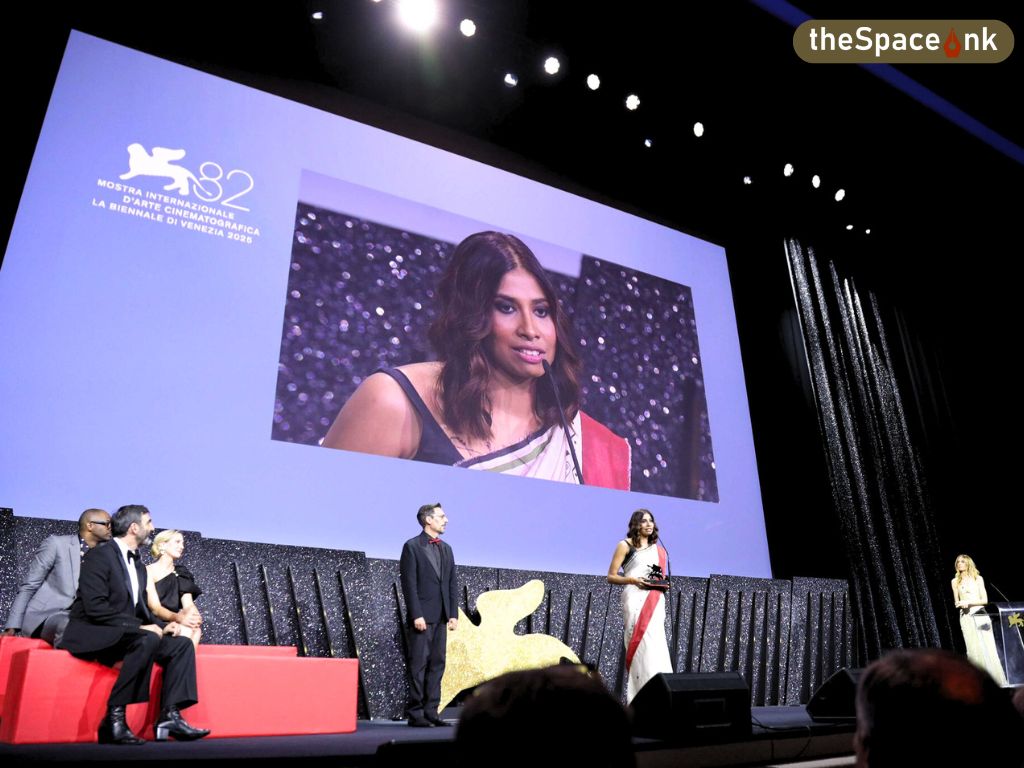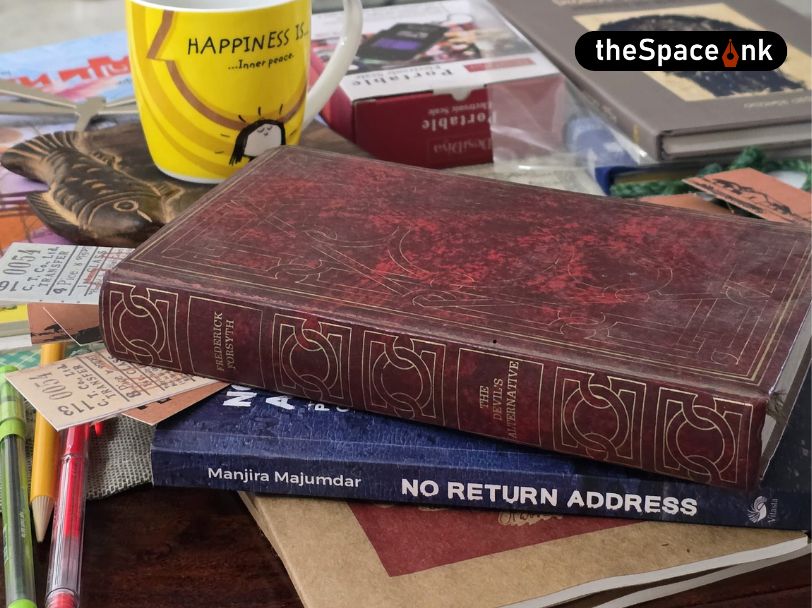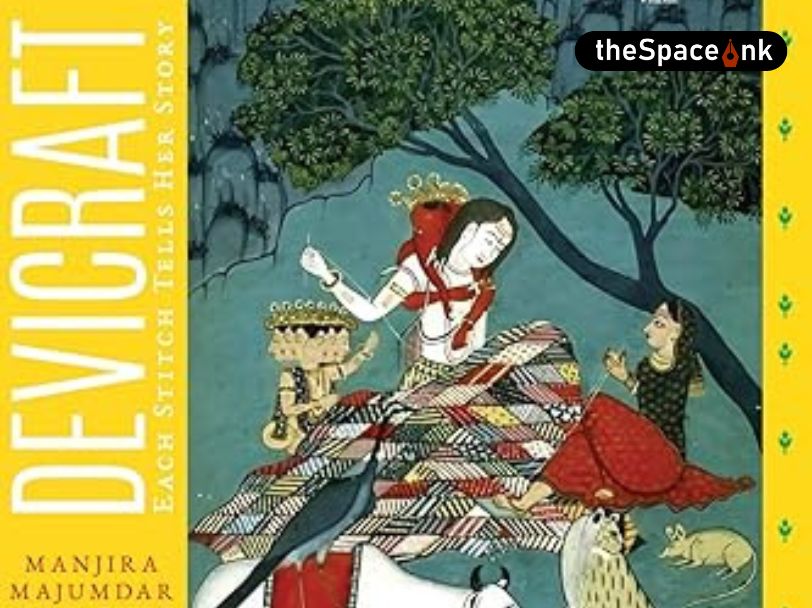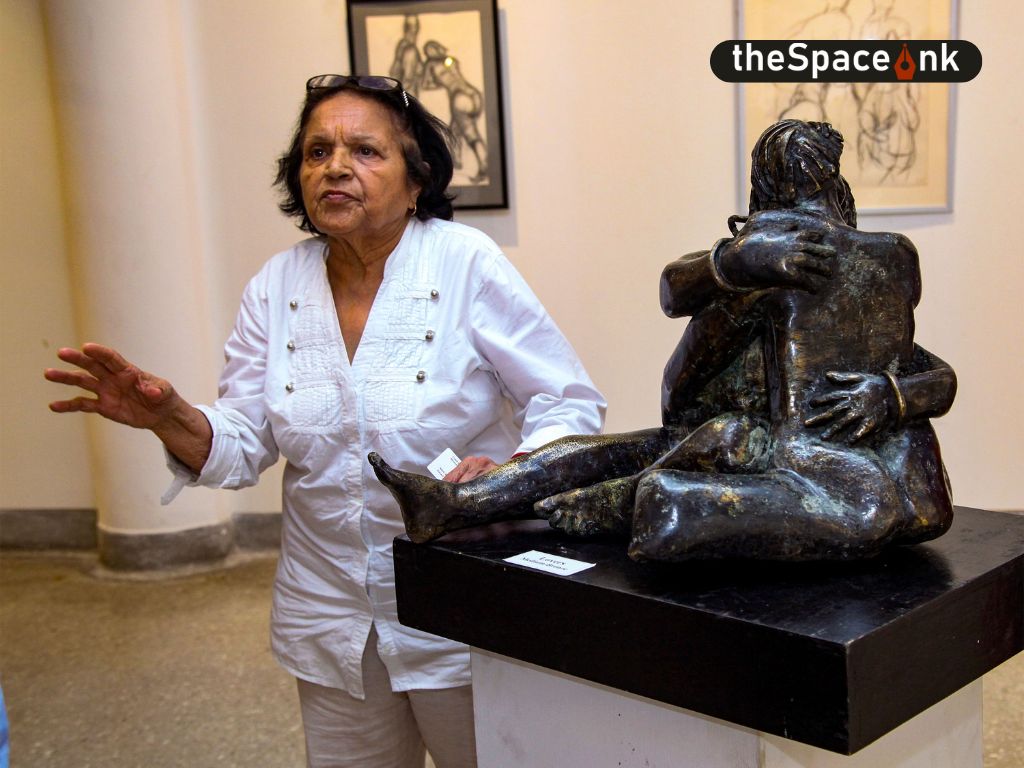Daminee Benny Basu’s brilliant performance in the OTT thriller series Chhotolok, where she portrays the main role of a gritty, sharp, hard-hitting police woman from a lower caste has grabbed eyeballs for all the right reasons. But Daminee has been around in theatre and films for many years now. She chooses her work with care and is seemingly not too bothered about media hype or visibility. She studied Philosophy as a graduate student at the Presidency and followed this with training in Cultural Anthropology (from Centre of Studies in Social Sciences, Calcutta). She also started working on her PhD but had to shelve it temporarily because of her very busy schedule. She is thoroughly trained in the Eric Morris System of Beyond-Method acting, by Eric Morris himself, in Hollywood. As a Coach she has been accredited by the International Coaching Federation. Benny is a guest faculty for IIM – Calcutta and National School of Drama, India.
That is Daminee Benny Basu for you. But let us get down to the questions she readily responded to.
Shoma: What drew you to acting as a career?
Daminee: I was raised by parents who are theatre practitioners. I have actually learnt to walk on stage. That’s where I’ve grown up. The world of performance was not a choice but literally a default in the system. By now it’s an existential thing. This is all that I can do, have ever done. You can say that I have been on stage from the time when my mother was carrying me in her womb. That would technically make it 1981, a year before my birth. My orientation has been very close to the Indian theatre for the last thirty-five years. On stage I have worked with directors like Soumitra Chattopadhyay, Asit Basu, Usha Ganguly, Bibhash Chakraborty, Debesh Chattopadhyay, Arun Mukhopadhyay, Suman Mukhopadhyay, Anjan Dutt to name only a few. I have acted, coached and researched as a consultant for directors like Rituparno Ghosh, Vishal Bharadwaj, Kaushik Ganguly, Shoojit Sircar, Srijit Mukherji, Anik Dutta, Raj Chakraborty, Indranil Roychowdhury and Parambrata Chattopadhyay.

Shoma: What are you currently engaged in?
Daminee: I currently handle the responsibility of coaching national and international actors/performers across the world through The Class Act Commune (Class Act) which looks to engage actors, performers, artists and anyone in learning or thinking deeply about issues that would help them in breaking set patterns of their own comfort zones. I am now invested into learning and understanding Jungian Psychology and Esoteric Psychology, and finding ways in which it can be applied to enhance performance. I am still working on and experimenting with different techniques and schools of acting around the world, which challenges and moves beyond set myths and hallowed practices amongst practitioners.
Shoma: How do you look back on the long struggle to reach where you are today?
Daminee: It’s been long, yes, but it has not been a struggle. I have a feeling these questions presume a very different picture of me. I’ve been extremely fortunate to be trained by the best of the bests in the world. I have always been loved by the audience ever since I was a child-actor. The struggles have mostly been caused by me getting in my own way! The external struggles are nothing but the reflections of my own internal fights in the light of patience and resistance.
Shoma: You are an actor and a teacher for actors. How would you describe the difference between the two?
Daminee: There is no difference. One is experiential and the other pedagogical. But both are performative. One strengthens and clarifies the other. My perspective is not that of difference. It’s more on the lines of enhancement. I’m equally passionate, gritty and relentless as a teacher in the room like I am at any given point before the camera or on stage.
Shoma: What is your criteria while accepting a film assignment as an actor? Money? Importance of role? Banner? Script? Director?
Daminee: Character. The one I haven’t played before. I have never cared much for money, importance/screen-time of a role, or banner. Of course the script has to excite me and also the vision of the director. But nothing is more important than the allure of a Character that I haven’t done before. Philosophically I believe it’s my only chance to dissolve my boundaries as someone I am right now and become just “anyone”! A no one, with a chance and permission to become anyone! It’s like living different timelines of yourself at the same lifetime. As an acting coach, however, I essentially try to understand what my pupils’ interest in acting is about, as long as they are coming to register for the general workshops that I run. But if they are particular project-based, like films or series, or TV or a play, then I mostly look at it from a mindspace of deliverables. The only thing that can affect me to reject/refuse something there might be an exclusively political assignment.
Shoma: What differences do you discern between Bollywood and the Tollygunge industry?
Daminee: One is a regional market and the other national. competition, work-opportunities, skill-set, job-titles, work-distribution, approach, professionalism, approach, pace, value for time, energy, budget, planning, reasons to be working, the importance of siesta in life – everything is different.
Shoma: Tell us a bit more about Class Act.
Daminee: This workshop involves modules inspired by the psychophysical ritualistic approach towards the body, breath, activation, and performance. In parallel, built around a post-Method approach it will simultaneously deconstruct myths about “Acting” based on ideas of superficial emulation. This work draws its core strength from the Eric Morris System of acting, and it has two parts to it: the Instrument and the Craft. The Instrument is YOU. Eric’s system has numerous exercises that make it possible for an actor to eliminate tension, fear, self-consciousness, inhibitions, emotional blocks and other obstacles, so he can achieve a being state. From this state of being, the actor can use the craft to create truth on stage or for the camera thereby achieving experiential acting. This regime would push them hard to step beyond the Method frames by drawing on a number of issues that handicap a performer like social and mental stigmas, image consciousness and basic misunderstanding of their own physical and cognitive capabilities.Class Actors are taught to break prejudices, unlearn their set moves and explore their mind, body, posture, diction, fear, expression and mould to connect to their individual BEING state as actors, or in a larger sense, BE unique individual artists in their own right.
Shoma: Do you think that there is a rush towards thrillers, especially on OTT Channels? Why?
Daminee: I guess it’s easy to ride on the perpetual flight-or-fight mode people manage to survive in, in the so-called modern world. It’s the closest to the feeling of instant gratification that finds its way in the nooks of dissociation. What else could grab our attention other than horror, thriller, murder, gore, morbidity in a world where we have normalized death, trauma, pandemics or wars? OTTs are accessible continuously from our mobile phones. Literally within our reach all the time. Not much difference between social media and OTT apps. One is running fiction, the other, not-so-virtual reality. One is drawing blood from the other. All high on dopamine-fry! Anyway all this is my exclusive point of view.
And on that note, we part.
Images courtesy: Facebook
Shoma A. Chatterji is a freelance journalist, film scholar and author based in Kolkata. She has won the National Award twice, in 1991 and 2000. She has authored 26 published titles of which 14 are on different areas of Indian cinema. She holds two Masters Degrees and a Ph.D. in History (Indian Cinema). She has also won a few Lifetime Achievement Awards from different organizations over time.








